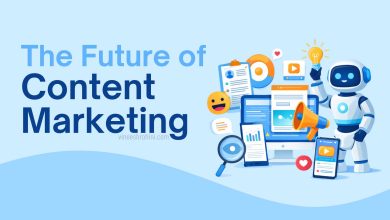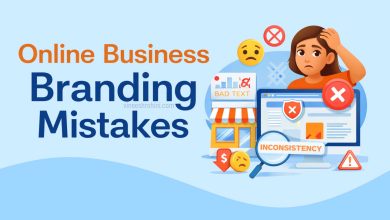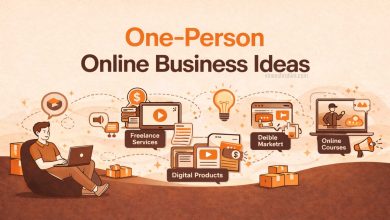Chatbot Marketing in 2025: Transforming Customer Engagement and Business Growth
Chatbot Marketing: The landscape of marketing has undergone seismic shifts over the past decade, and 2025 stands as a hallmark year in which chatbot marketing firmly establishes itself as a dominant force. With artificial intelligence (AI) technologies advancing at an unprecedented rate, chatbots have transcended their earlier, rudimentary forms to become sophisticated tools that not only handle customer inquiries but also drive sales, foster brand loyalty, and provide personalized experiences. In this essay, we delve into the evolution, applications, benefits, and future implications of chatbot marketing in 2025.
Table of Contents
What are Chatbots

Chatbots, also referred to as conversational agents or virtual assistants, are software tools designed to communicate with users via text or voice. Powered by AI algorithms, they process natural language queries and deliver real-time, personalized responses. These intelligent virtual assistants can be embedded into websites, social media platforms, messaging apps, and other digital channels, offering smooth and interactive customer engagement.
The Evolution of Chatbots
Chatbots were initially introduced as basic programs designed to answer simple questions. However, the exponential growth of AI, natural language processing (NLP), and machine learning (ML) has transformed these virtual assistants into intelligent, conversational entities. By 2025, chatbots are no longer limited to scripted responses; they understand context, adapt to user preferences, and communicate in multiple languages with near-human fluency.
Integrations with advanced AI platforms like OpenAI’s GPT models and cloud-based services have empowered chatbots to process vast amounts of data in real-time, enabling them to predict user needs, offer actionable solutions, and engage in meaningful conversations. Additionally, the proliferation of omnichannel communication—encompassing websites, social media, messaging apps, and voice assistants—has solidified chatbots as a central pillar of marketing strategies.
Read more: 10 Best AI Digital Marketing Tools 2025 : Comprehensive Guide
Applications of Chatbot Marketing in 2025

In 2025, chatbot marketing is reshaping the way businesses interact with their audiences. Below are some of the key applications:
1. Personalized Customer Interactions
Chatbots now leverage customer data to provide hyper-personalized recommendations. By analyzing browsing history, purchase behavior, and demographic information, chatbots suggest products or services tailored to individual preferences. For instance, an e-commerce chatbot can recommend clothing items based on a customer’s past purchases and even suggest complementary accessories.
2. Sales Enablement and Upselling
Modern chatbots are adept at converting casual inquiries into sales opportunities. They guide customers through the sales funnel by answering questions, providing product demonstrations, and suggesting upsells or cross-sells. For example, in the travel industry, a chatbot can help users book flights, offer travel insurance, and suggest popular tours at the destination.
3. Customer Support and Issue Resolution
In 2025, chatbots provide round-the-clock customer support, significantly reducing response times and operational costs. Equipped with sentiment analysis capabilities, chatbots detect customer frustration and escalate issues to human agents when necessary, ensuring seamless issue resolution. This hybrid approach enhances customer satisfaction and retention.
4. Lead Generation and Qualification
Chatbots are instrumental in lead generation, engaging website visitors and qualifying them through targeted questions. By analyzing user responses, chatbots segment leads into categories, enabling sales teams to prioritize high-value prospects. This automated process improves efficiency and boosts conversion rates.
5. Social Media Engagement
Social media platforms are key battlegrounds for brand visibility, and chatbots play a pivotal role in managing interactions. They respond to comments, handle direct messages, and even conduct surveys or polls to gather valuable customer insights. Chatbots also create personalized ad campaigns by analyzing audience behavior on platforms like Instagram, Facebook, and TikTok.
6. Event Marketing and Virtual Experiences
As hybrid and virtual events gain popularity, chatbots enhance attendee experiences by providing event schedules, answering FAQs, and facilitating networking opportunities. For instance, during a product launch, a chatbot can guide participants to live-stream links, share exclusive offers, and gather feedback in real-time.
7. Conversational Commerce
The rise of conversational commerce has made chatbots essential in simplifying the shopping journey. Integrated with payment gateways, chatbots allow users to complete transactions without leaving the chat interface, ensuring a seamless and frictionless buying experience.
Benefits of Chatbot Marketing

1. Enhanced Customer Experience
Chatbots provide instant, accurate responses, minimizing wait times and frustration. Their ability to engage in natural conversations creates a sense of personalization, making customers feel valued.
2. Cost Efficiency
By automating repetitive tasks, chatbots reduce the need for large customer service teams. Businesses can reallocate resources to strategic initiatives, leading to significant cost savings.
3. Scalability
Unlike human agents, chatbots can handle thousands of interactions simultaneously, ensuring consistent service during peak times. This scalability is particularly beneficial for global businesses with diverse customer bases.
4. Data-Driven Insights
Chatbots collect and analyze data from every interaction, providing businesses with actionable insights into customer preferences, pain points, and emerging trends. This data helps refine marketing strategies and improve product offerings.
5. 24/7 Availability
In today’s fast-paced world, customers expect immediate responses. Chatbots’ round-the-clock availability ensures that businesses never miss an opportunity to engage with potential or existing customers.
Buy now: Internet Marketing Mastery Course
Challenges and Ethical Considerations
Despite their benefits, chatbot marketing in 2025 faces challenges that must be addressed:
- Privacy Concerns: With chatbots collecting vast amounts of customer data, ensuring compliance with data protection regulations like GDPR and CCPA is critical.
- Bias and Fairness: AI systems must be designed to avoid biases that could alienate certain customer segments.
- Human Touch: While chatbots are highly efficient, some customers still prefer human interaction for complex or sensitive issues.
- Technical Limitations: Despite advancements, chatbots occasionally fail to understand nuanced language or cultural context, leading to suboptimal user experiences.
The Future of Chatbot Marketing

Looking ahead, chatbot marketing is poised to become even more transformative. Innovations like voice-activated chatbots, augmented reality (AR) integrations, and blockchain-enabled secure transactions are on the horizon. Businesses will increasingly adopt AI-driven chatbots as virtual brand ambassadors, capable of handling end-to-end customer journeys.
Moreover, the rise of ethical AI practices will ensure transparency and fairness in chatbot interactions. Companies that prioritize ethical considerations will build stronger trust with their audiences, gaining a competitive edge in the market.
Buy now: SEO Mastery Detailed Course
Conclusion
In 2025, chatbot marketing is not merely a trend but a necessity for businesses aiming to thrive in a competitive landscape. By leveraging advanced AI technologies, chatbots empower brands to deliver personalized, efficient, and scalable customer experiences. While challenges persist, the potential for innovation and growth is immense. As businesses continue to embrace chatbot marketing, they will unlock new opportunities to connect with their audiences, drive sales, and achieve lasting success in the digital age.



